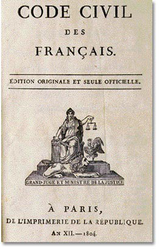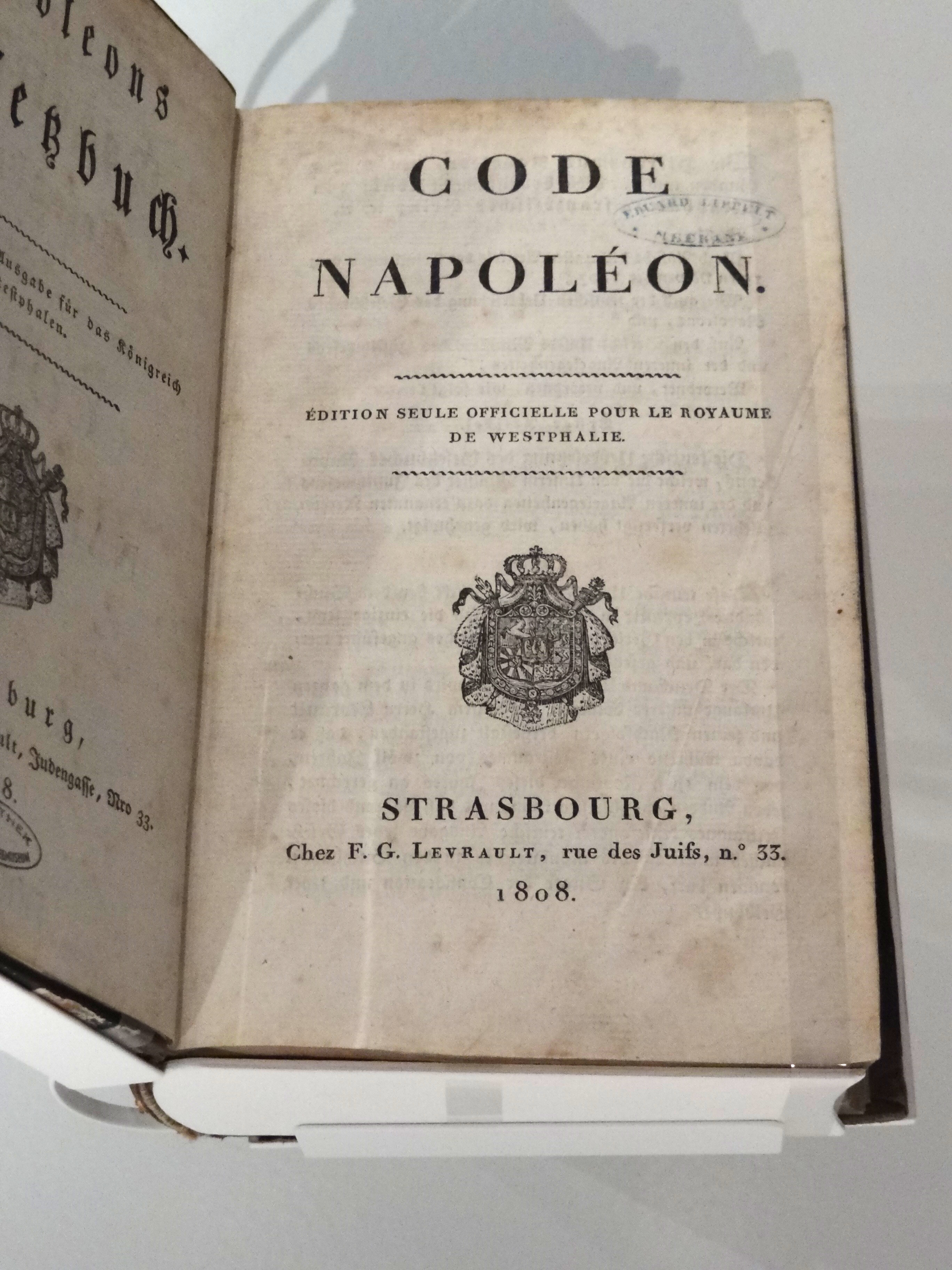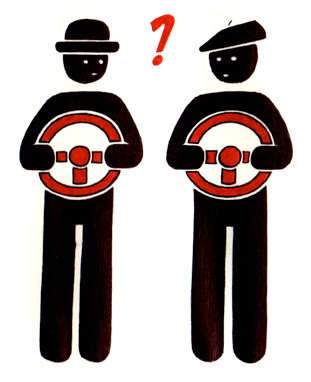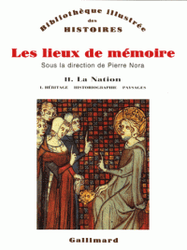Aug. 25, 2014
Blog

 The "pinnacle" means the culmination of a successful issue. Here, the Code civil (French Civil Code) would be the point of perfection of French law. For many this qualification is required with evidence before this masterpiece of concision, practice and use of language. This implies a critique of the current French law, including a legislator that would had fallen very low.
The "pinnacle" means the culmination of a successful issue. Here, the Code civil (French Civil Code) would be the point of perfection of French law. For many this qualification is required with evidence before this masterpiece of concision, practice and use of language. This implies a critique of the current French law, including a legislator that would had fallen very low.
But the question nevertheless arises. Since before the Civil Code, there was a law that was not as unworthy.
Moreover, after some general principles, all the civil law takes place into the Civil Code, family law, contract law, tort law, and so on. But the criminal law or public law aren't inserted in the book.
Thus, it is rather the form, the art of writing the law that can be given to this term apogee Civil Code, not the substance that can bring so much praise to the Code civil because he never embraced the french law in its entirety.
In addition, it is true that the form is the pinnacle of French law, but a French law that put the law should only be expressed through writing through codification rather than practices or casebased rules.
We must therefore bow to bin assumptions before proclaiming that the Civil Code is the pinnacle of French law. Admitting it is rather the culmination of a certain conception of the law, a non indiscutable conception, he was a perfect and sublime event.
June 22, 2014
Blog
 One of the reasons why the law has a bad reputation is that it would be "arbitrary". It would be composed of rules, imposing to do this or not to to do that, without strong reasons. Ultimately, what we do does not matter, as long as we all behave in a similar way. No matter the substance in the legal rule which is adopted, the law, is primarily question of order.
One of the reasons why the law has a bad reputation is that it would be "arbitrary". It would be composed of rules, imposing to do this or not to to do that, without strong reasons. Ultimately, what we do does not matter, as long as we all behave in a similar way. No matter the substance in the legal rule which is adopted, the law, is primarily question of order.
And a frequent example is the rule to drive on the left or to drive on the right on the roads.. Because it is a legal rule. It is often said that the law is "like that" and it is made just for the sole purpose of ensuring that everyone does the same, so there is no accident .
But is that such an arbitrary rule ?
Do the British, driving on the left, have no more reason to do so that French who drive on the right ?
If we can show that British legal rule has a more rational basis, then we must end up suspecting that no rule of law is established "without reason."
Updated: July 31, 2013 (Initial publication: Sept. 20, 2011)
Teachings : Les Grandes Questions du Droit, semestre d'automne 2011

April 30, 1986
Thesaurus : Doctrine

► Référence complète : J. Carbonnier, "Le Code civil", in P. Nora (dir.), Les lieux de mémoire, III. La Nation, 2. Le territoire, l’État, le patrimoine, coll."nrf - Bibliothèque illustrée des histoires", Gallimard, Paris, 1986, p.293-315.
____
► Résumé de l'article (par mafr) : dans cette encyclopédie dirigée par Pierre Nora sur "Les lieux de mémoire", le doyen Carbonnier apporte une contribution sur le Code civil et pose d'emblée que "le droit vit sur la réputation d'avoir pour ressort la mémoire" (p.293).
L'auteur montre que la technicité du droit enferme aujourd’hui celui-ci dans le monde des juristes, alors qu’à l'époque du Code civil, il était l'affaire de tout honnête homme, lequel s’en souciait, d'une part et que les philosophes l'intégraient dans leurs réflexions politiques d'autre part.
Il voit dans le Code civil un « monument historique » inséparable de Napoléon. Substantiellement, il montre que les règles du Code civil sont faites de compromis, animées d’un souci d’efficacité et d’unité entre les hommes.
Il s'agit pour lui d'un travail non pas "dogmatique" mais "transactionnel".
Doté d’une « aura d’éternité », le Code civil a ainsi, si ce n’est formellement au moins symboliquement, une dimension de « constitutionnalité… sociologique », en raison de la sagesse de ses règles pratiques, de la beauté de son style, de son souci de la symbolique.
_____
lire ci-dessus un résumé plus développé⤵️
____
🦉les personnes suivant les cours de la professeure Marie-Anne Frison-Roche peuvent accéder au texte intégral de l'article.